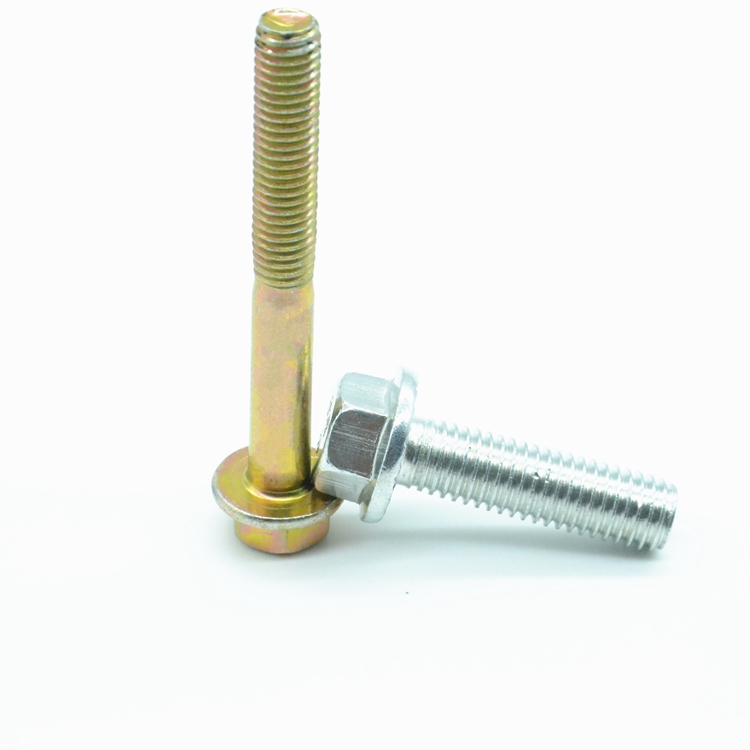Best Internal Hex Head Stud Bolts for Reliable Performance and Durability
Sep . 29, 2024 02:29 Back to list
Best Internal Hex Head Stud Bolts for Reliable Performance and Durability
The Best Stud Bolt with Internal Hex Head A Comprehensive Overview
When it comes to fastening solutions in various engineering and construction applications, stud bolts are indispensable components. Among the myriad designs available, the stud bolt with an internal hex head stands out for its unique advantages and functionalities. In this article, we will explore the characteristics, benefits, and applications of this essential fastening solution.
Understanding Stud Bolts
Before delving into the specifics of stud bolts with internal hex heads, it’s vital to understand what stud bolts are. Stud bolts are cylindrical rods with threads, which can either be fully threaded or partially threaded. They are typically used in conjunction with nuts and are ideal for situations where a secure, high-strength connection is necessary. The internal hex head feature introduces an additional means of engagement that facilitates efficient tightening and loosening.
Advantages of Internal Hex Head Design
The internal hex head design is particularly advantageous for several reasons. Firstly, it allows for the use of a hex key or Allen wrench, which provides greater torque control and reduces the risk of damaging the fastener compared to other head types. This design is especially beneficial in tight spaces where conventional wrenches or sockets cannot easily fit.
Secondly, the internal hex head enhances the aesthetic appeal of the stud bolt. This is especially important in applications where the fastener will be visible. The sleek design contributes to a cleaner and more professional finish, making it a favored choice for both industrial and architectural applications.
Thirdly, the internal hex head provides a better grip, reducing slip and ensuring that the torque is effectively transferred to the fastener. This means that less force is required to achieve the desired tightness, ultimately leading to reduced wear on both the stud bolt and the associated components.
best stud bolt with internal hex head

Materials and Coatings
Stud bolts with internal hex heads are available in various materials, including carbon steel, stainless steel, and alloy steel. The choice of material often depends on the specific application requirements, such as resistance to corrosion, temperature extremes, or chemical exposure.
Additionally, these fasteners can be coated with special finishes to enhance their durability and resistance to environmental factors. Common coatings include zinc plating, hot-dip galvanizing, and more advanced options like polymer coatings, which can provide superior protection against wear and corrosion.
Applications
The versatility of stud bolts with internal hex heads makes them suitable for a wide range of applications. They are commonly used in the construction industry for structural assemblies, mechanical engineering for machinery components, and automotive applications for securing engine parts. Furthermore, their robust design is ideal for applications that require high tensile strength, such as pipelines and pressure vessels.
In the aerospace industry, the internal hex head design's enhanced grip and torque control make it particularly valuable, as safety and reliability are of paramount concern.
Conclusion
In summary, stud bolts with internal hex heads represent a sophisticated and efficient fastening solution for a variety of industries. Their design features—such as the ability to provide higher torque, aesthetic appeal, and versatility—make them a superior choice for many fastening applications. By selecting the right material and finish, engineers and builders can ensure that these fasteners perform reliably under the most demanding conditions, safeguarding the integrity and longevity of their projects. As industries continue to evolve, the importance of high-quality fastening solutions like stud bolts with internal hex heads will only continue to grow.
Latest news
-
High-Quality Panel Stud Bolt Reliable Panel Stud Bolt Factory & Suppliers
NewsJul.08,2025
-
High-Precision Fine Thread Locknuts Manufacturer & Supplier Custom Solutions
NewsJul.08,2025
-
PH Imperial Stud Bolt – High Strength Fasteners from Leading Supplier & Factory
NewsJul.07,2025
-
High-Quality Allen Wrench Bolts Leading Factory, Company & Suppliers
NewsJul.07,2025
-
Wholesale Ball Stud Bolt - High Quality Supplier & Factory Price Reliable Wholesale Ball Stud Bolt Company
NewsJul.06,2025
-
High-Strength Alloy Bolts Manufacturer & Supplier Quality Alloy Fasteners Factory
NewsJul.06,2025
